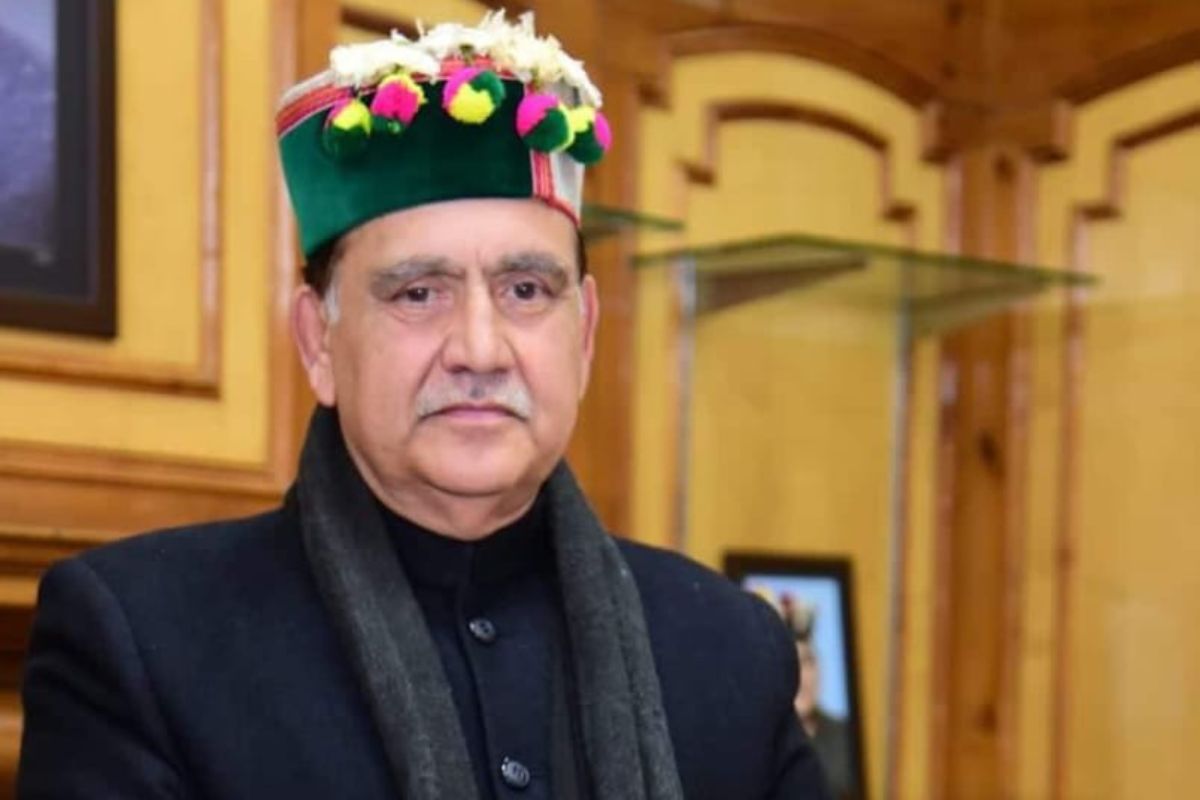The Baal Satra will help children grasp the concepts such as elections, voting, the role of government, and opposition & instill critical thinking
The brain behind the idea of Baal Satra (children’s session), where 68 children chosen to play the role of legislators in Himachal Pradesh Legislative Assembly is Kuldeep Singh Pathania, the five-time MLA and Himachal Pradesh Legislative Assembly Speaker.
Advertisement
While the Baal Satra is being organised by the NGO Future Society, under the aegis of the Himachal Pradesh Legislative Assembly on 12 June, it was Pathania who recognised the need to catch them young which will help the children of the future generation to understand the importance of democracy. In an interview with Bhawani Negi, he spoke on various issues concerning the state, his own political journey, and the need for political literacy amongst the new generation.
Excerpts:
BN. What is your take on ‘Baal Satra’ – Children’s session, organised by NGO Future Society, under the aegis of the Himachal Pradesh Legislative Assembly on 12 June?
KSP. found this idea a novel way to catch the children young. Also, I thought it would make them politically literate. The children can be the leaders of tomorrow, and hence their awareness becomes all the more imperative.
BN. What do you have to say about the relevance of political literacy among children?
KSP. Political literacy will help children understand the democratic process. It will help them to grasp the concepts such as elections, voting, the role of government, and the opposition, thereby laying a foundation for active participation and critical thinking.
By the time they are mature enough to vote, they will be equipped with a better political understanding of societal issues and policies. This also will help them in making an independent decision while choosing the right candidate. Children who are politically literate are more likely to develop leadership skills and also aspire to become future leaders themselves.
BN. Already with an experience of four terms as a member of the House, do you see any change in the functioning and conduct of the House over the years?
KSP There are a lot of changes and challenges. There is a need to work in accordance with it. There is digital transformation and both the legislators and the public have embraced digital tools of communication, information sharing, and legislative processes. Technology has made it easier for legislators to collaborate and engage with their constituents. The pressure to perform has taken over the members of the House. However, they must conform to maintaining the dignity of the House. The Himachal Pradesh State Assembly became the first legislative house in the country to have undergone a digital transformation in 2014 with e-Vidhan System. The first paperless assembly session was held in August 2014.
BN. How are you utilising your experiences as Speaker of the House?
KSP. When I joined as a member of the house I was clear. I strongly believed that the public interest should be above politics. Issues raised in the House should ideally be driven by the public interest, rather than mere political considerations so that it not only serves the interests of the people but also reflects the concerns and needs of the public at large. When issues are raised solely for political reasons, they can lead to negative outcomes and divert attention and resources away from the matters that genuinely affect the well-being of the public.
BN. Any initiatives or reforms brought about by you so far?
KSP. It’s been a very short period for me. I have been able to conduct two sessions so far. However, the productivity of the House during the budget session was 94 per cent, which is a good change. I had permitted each and every member of the legislative assembly whether from the ruling or the opposition to express their views and also shoulder the responsibility of making rules and regulations that govern the society.
BN. Public is keen to know about the issues being discussed in the House by their representatives. Is there any possibility for a live telecast of the Assembly proceedings?
KSP. Live telecast of the House is being considered. The Parliamentary Affairs Ministry is working on the idea to link all state legislative assemblies with a digital grid for live streaming of sessions. However, at present we already have the chief minister’s budget speech address being telecast live. Also, we have the recordings of the proceedings of the House on the Vidhan Sabha website that can be accessed by the public.
BN. Many state assemblies and the Indian Parliament have zero-hour session. Will the Himachal Pradesh Assembly introduce it?
KSP. It can be considered.
BN. Can the debt-ridden state afford two Vidhan Sabhas, especially the second one in Dharamshala?
KSP. Since two Vidhan Sabhas already exist in the state, there is no question of affordability as sessions are being conducted at both places. The winter session has been held at Tapovan, Dharamsala for over a decade. However, we can consider its optimum use by developing the place into a parliamentary training centre in the future and carrying out other worthwhile activities like seminars and sessions there.
















